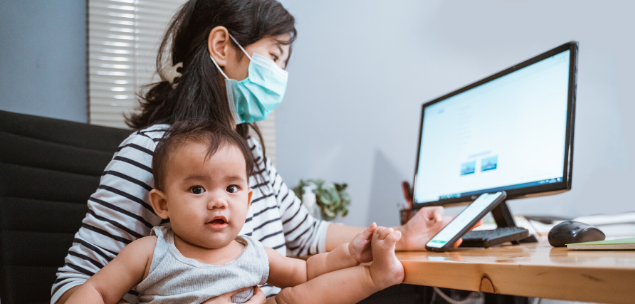Workplace safety will become as important to a 2020s office as it is to an outdoor worksite or the mine, while flexible work is here to stay as employees call for permanent work-from-home options, the new 2020 FlexCareers Report reveals.
Based on answers from 1622 employees across over a 12-day time frame (17 to 29 May, 2020), the survey seeks to understand what the ‘new workplace normal’ will be following COVID-19.
Figures show that employer attention to hygiene, physical health, mental health and overall wellness will become paramount, with 89% of job seekers saying an employer’s work health and safety policy is important or very important when assessing a potential employer, and over half (53%) of employees stating they are worried about office cleanliness and hygiene, and looking at companies’ health policies more seriously than ever before.
There is an overwhelming preference for remote work in some capacity, with only 5% of workers wanting to return to the office completely. At EY, 20% of employees state they want to stay working remotely, and only 11 per cent saying they want to be one of the first to return to the office
FlexCareers co-founder and CEO, Joel McInnes, says that people have seen and experienced a whole new world of possibility when it comes to how and where they work — and that they won’t be going back.
“From now on, the question is going to be: how will my employer support me to work the way I want to work, as I know it’s possible?” he says.
Related: How to support your employees’ wellbeing during COVID-19 disruption
A plunging economy and diminished future work prospects are also driving people to seek on-the-job learning, as well as support from employers to accommodate independent professional education outside work to best prepare for the future.
Mr McInnes says that people want to know what their employer is doing to look after their physical and mental health in the workplace.
“They are asking, ‘How are you going to keep me safe and let me work flexibly if I need to?” he says.
“With over two-thirds of workers (67%) either worried, or strongly worried, about travelling on public transport, it’s certainly going to be a challenge making them feel comfortable coming into the office.”
He also says that people are worried about their jobs and are realising that their skillset may not line up to future work opportunities.
“More than two-thirds (68%) of people we spoke to are looking to pursue professional education independently of their employer, and even pay for it themselves, in order to secure against future job losses,” Mr McInnes says.
“And almost one fifth (18%) of currently employed people strongly agree they will be seeking a second income.”
Nearly half (48%) say they are currently looking for a role that enables remote working, and 40% are considering switching careers. Just under half of all participants (45%) want to switch industries altogether.
“As people assess their potential employer today, they’re assuming they’ll be made redundant in three years’ time,” Mr McInnes says.
“They’re thinking: before you sack me, what skills can I expect to learn from you that will put me in a better position to face work in three years’ time?”
Keep up to date with our stories on LinkedIn, Twitter, Facebook and Instagram.

